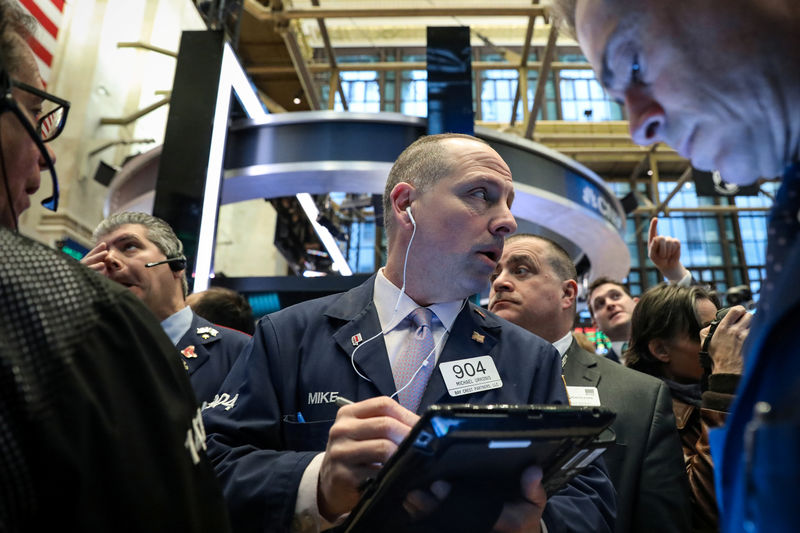By Saqib Iqbal Ahmed and Herbert Lash
NEW YORK (Reuters) - A gauge of world equity markets rose and the dollar eased on Tuesday after a tame reading on U.S. inflation reinforced expectations the Federal Reserve will not raise interest rates anytime soon, while Boeing (NYSE:BA) shares slid for a second day.
U.S. consumer prices rose for the first time in four months in February but the modest pace of the increase resulted in the smallest annual gain in inflation in nearly 2-1/2 years.
In the 12 months through February, the CPI rose 1.5 percent, well under the Fed's target of 2 percent, leading the dollar to slip against the euro and the dollar index of leading U.S. trading partners' currencies to fall. Gold gained on the weaker greenback.
"The takeaway from the data was that inflation is in check and that would allow the Fed to remain patient and that is always good for equities," said Chris Zaccarelli, chief investment officer for Independent Advisor Alliance in Charlotte, North Carolina.
Candice Bangsund, part of the Global Asset Allocation team at Fiera Capital in Montreal, said it was premature to rule out further central bank tightening this year and that those who see a rate cut as the Fed's next move were overly pessimistic.
"While we don't see inflation coming back in an aggressive manner, we do see inflation slowly accelerating," she said.
Boeing Co slumped 6.13 percent to extend Monday's losses as more countries, including all of the European Union, grounded the company's 737 MAX planes following a second fatal crash of a MAX 8 jetliner in five months.
Rival airplane manufacturer Airbus SE was the biggest contributor to advancing shares in the FTSEurofirst 300 of leading European shares, rising 1.43 percent. But the index edged lower as investors awaited a Brexit vote.
Britain's parliament late Tuesday rejected Prime Minister Theresa May's deal to quit the EU for a second time, deepening the country's worst political crisis in generations, a scant 17 days before the planned departure date.
Sterling fell in volatile trading, down 2 percent to $1.3006 at one point. The pound later recouped some losses to trade 0.59 percent lower at $1.3076 after the vote.
MSCI's all-country world index of equity performance in 47 countries rose 0.49 percent, while the pan-European STOXX 600 index lost 0.06 percent.
On Wall Street, the S&P 500 gained 8.22 points, or 0.30 percent, to 2,791.52 and the Nasdaq Composite added 32.97 points, or 0.44 percent, to 7,591.03.
The Dow Jones Industrial Average fell 96.22 points, or 0.38 percent, to 25,554.66, dragged lower by slumping Boeing.
Investors have been too bearish on the economy, Bangsund said, adding that Fiera Capital had gone overweight on equities in expectations of a successful U.S.-China trade accord and a stabilized Chinese economy, which would help spur global growth.
The Mexican peso and Canadian dollar gained on the tame U.S. inflation data as the dollar index fell 0.27 percent and the Japanese yen weakened 0.08 percent versus the greenback at 111.28 per dollar.
The euro gained 0.43 percent to $1.1295.
U.S. Treasury yields drifted lower after the inflation data.
U.S. long-dated yields have fallen in six of the last seven sessions, while those on two-year notes, the security most sensitive to interest rate moves, dropped in five of the last seven.
Benchmark 10-year U.S. Treasury notes rose 12/32 in price to push the yield down to 2.5997 percent.
Oil prices rose, supported by signs of tightening global supply after a Saudi official said the kingdom plans to cut oil exports in April, while a power outage in Venezuela reduced its crude exports.
Brent crude futures settled up 9 cents at $66.67 a barrel. U.S. West Texas Intermediate (WTI) crude futures rose 8 cents to settle at $56.87 a barrel.

U.S. gold futures settled 0.5 percent higher at $1,297.70.